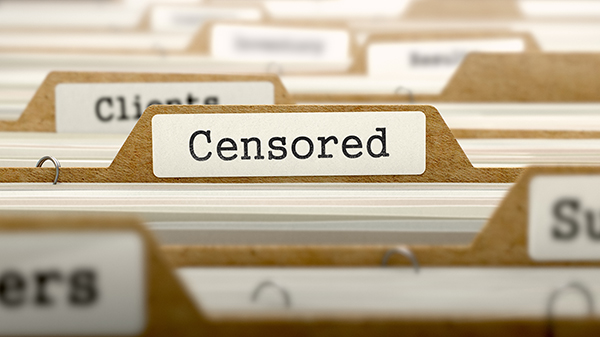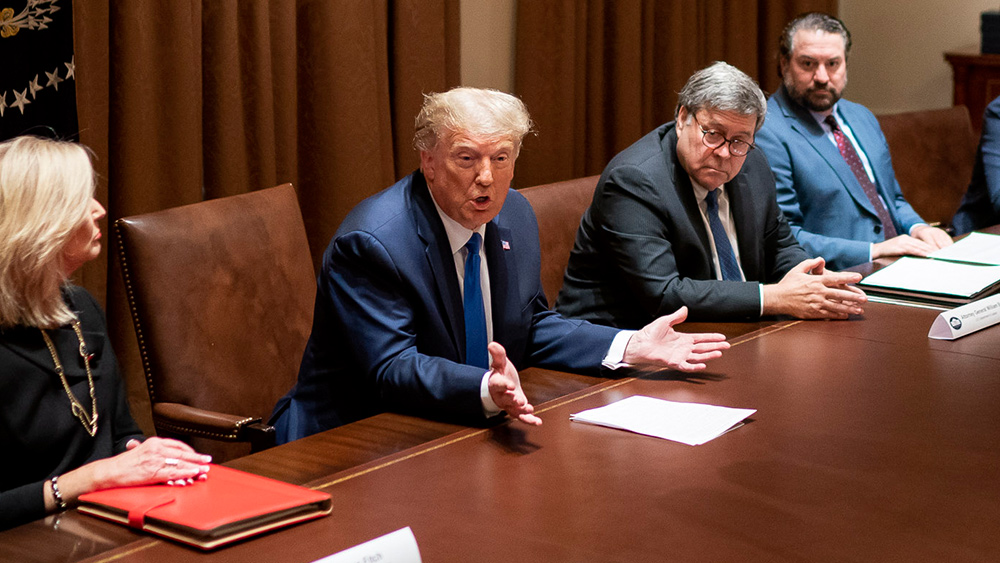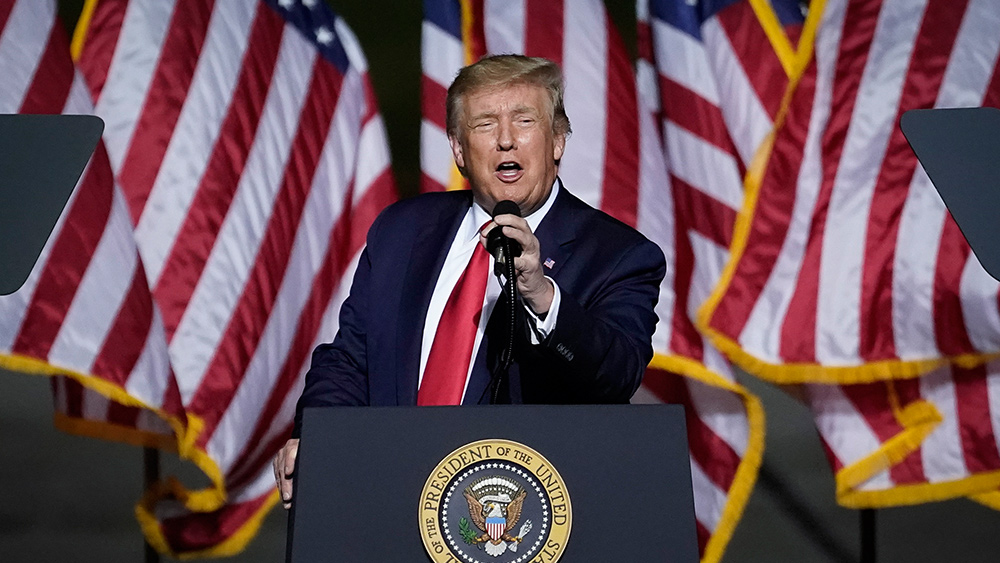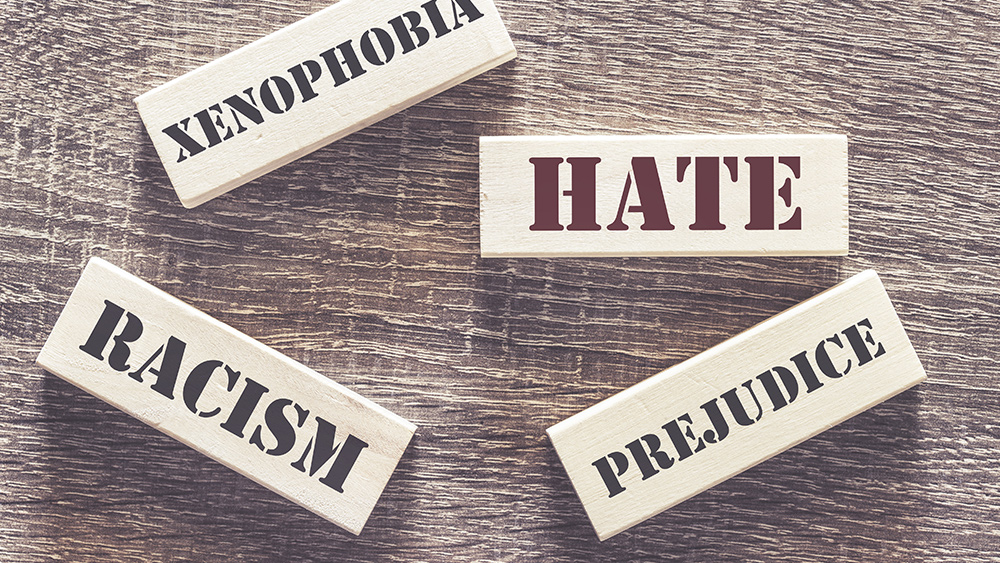“The responsibility to not report”: Irish journalist defends suppressing stories for the public good
12/04/2023 / By News Editors

We have been discussing the latest Irish law to crackdown on free speech. Yet, even with the criminalization of speech, there is apparently still the danger of citizens reading or hearing facts from reporters that are best kept from them. Thus, Kitty Holland, a correspondent with the Irish Times, is defending the media’s decision to suppress stories that would “incite hatred” and undermine journalistic viewpoints.
(Article by Jonathan Turley republished from JonathanTurley.org)
The comments came in a BBC interview regarding the victim impact statement of the boyfriend of Ashling Murphy, who was murdered in 2022 by an immigrant. Ryan Casey stated in part:
It just sickens me to the core that someone can come to this country, be fully supported in terms of social housing, social welfare, and free medical care for over 10 years… over 10 years… never hold down a legitimate job, and never once contribute to society in any way shape or form… can commit such a horrendous evil act of incomprehensible violence on such a beautiful, loving and talented person who in fact, worked for the state, educating the next generation and represented everything that is good about Irish society.
I feel like this country is no longer the country that Ashling and I grew up in, and Ireland has officially lost its innocence when a crime of this magnitude can be perpetrated in broad daylight. This country needs to wake up. This time, things have got to change, we have to once and for all start putting the safety of not only Irish people — but everybody in this country who works hard, pays taxes, raises families and overall contributes to society — first.
We don’t want to see any other family in this country go through what we have gone through and are continuing to go through. I myself have a little sister and honestly, just the thought of her walking the streets of any village, town or city in this country alone makes me physically sick and quite frankly absolutely terrifies me as this country is simply not safe anymore!
This time, if real change does not happen, if the safety of people living in this country is further ignored, I’m afraid our country is heading down a very dangerous path and you can be certain that we will not be the last family to be in this position.
The host asked: “Those were very interesting comments, weren’t they?”
Holland disagreed and said that they had to be suppressed in the best interests of the public:
“I think elements of them were not good,. They were incitement to hatred, and I think that’s why the media left out aspects of them. I think they were right to not include [Casey’s full comments in news reports]. I don’t think that they were helpful, and this is the kind of thing that the far right latches on to.”
What was striking was the ease with which Holland moves directly into the suppression of a story as the guardian of the public good. Some news is simply “not helpful” so the media should not allow the public to be exposed to it.
Holland previously won the Journalist of the Year, News Reporter of the Year, and the Overall winner of the Justice Media Awards.
Holland’s view is consistent with many in the media in the United States today.
I have long been a critic of what I called “advocacy journalism” as it began to emerge in journalism schools. These schools encourage students to use their “lived expertise” and to “leave[] neutrality behind.” Instead, of neutrality, they are pushing “solidarity [as] ‘a commitment to social justice that translates into action.’”
For example, we previously discussed the release of the results of interviews with over 75 media leaders by former executive editor for The Washington Post Leonard Downie Jr. and former CBS News President Andrew Heyward. They concluded that objectivity is now considered reactionary and even harmful. Emilio Garcia-Ruiz, editor-in-chief at the San Francisco Chronicle said it plainly: “Objectivity has got to go.”
Saying that “Objectivity has got to go” is, of course, liberating. You can dispense with the necessities of neutrality and balance. You can cater to your “base” like columnists and opinion writers. Sharing the opposing view is now dismissed as “bothsidesism.” Done. No need to give credence to opposing views. It is a familiar reality for those of us in higher education, which has been increasingly intolerant of opposing or dissenting views.
Downie recounted how news leaders today
“believe that pursuing objectivity can lead to false balance or misleading “bothsidesism” in covering stories about race, the treatment of women, LGBTQ+ rights, income inequality, climate change and many other subjects. And, in today’s diversifying newsrooms, they feel it negates many of their own identities, life experiences and cultural contexts, keeping them from pursuing truth in their work.”
There was a time when all journalists shared a common “identity” as professionals who were able to separate their own bias and values from the reporting of the news.
Now, objectivity is virtually synonymous with prejudice. Kathleen Carroll, former executive editor at the Associated Press declared “It’s objective by whose standard? … That standard seems to be White, educated, and fairly wealthy.”
In an interview with The Stanford Daily, Stanford journalism professor, Ted Glasser, insisted that journalism needed to “free itself from this notion of objectivity to develop a sense of social justice.” He rejected the notion that journalism is based on objectivity and said that he views “journalists as activists because journalism at its best — and indeed history at its best — is all about morality.” Thus, “Journalists need to be overt and candid advocates for social justice, and it’s hard to do that under the constraints of objectivity.”
Lauren Wolfe, the fired freelance editor for the New York Times, has not only gone public to defend her pro-Biden tweet but published a piece titled “I’m a Biased Journalist and I’m Okay With That.”
Former New York Times writer (and now Howard University Journalism Professor) Nikole Hannah-Jones is a leading voice for advocacy journalism.
Indeed, Hannah-Jones has declared “all journalism is activism.”
At the same time, outlets like National Public Radio have abandoned the rule that journalists should not engage in public protests.
NPR declared that it would allow employees to participate in political protests when the editors believe the causes advance the “freedom and dignity of human beings.” So it remained up to the editors if a reporter could join a pro-life protest (unlikely) or a pro-gun control protest (very likely).
Likewise, American politicians (including Barack Obama) have called upon the media to actively frame news to shape public opinion. This includes support for the widespread censorship of opposing views on social media.
The Holland interview shows how matter-of-fact the cause of censorship has become for reporters. The immediate question is not whether it was news to report (which it certainly was), but whether the news would further the cause or narrative of the media.
There has always been media bias, but it is now openly acknowledged and embraced by reporters. They view themselves now as the guardians protecting citizens from harmful information or news that they cannot put into the proper perspective. Information is treated like sugary drinks under the Big Gulp laws, you are better off having others decide what is healthy for you to consume . . . or to know.
Read more at: JonathanTurley.org
Submit a correction >>
Tagged Under:
absurd, banned, biased, Censorship, culture wars, free speech, insanity, Irish Times, Journalism, Kitty Holland, left cult, lunatics, mainstream media, news cartels, social justice, speech police, Suppressed, thought police, Tyranny
This article may contain statements that reflect the opinion of the author
RECENT NEWS & ARTICLES
COPYRIGHT © 2017 BIASED NEWS




















